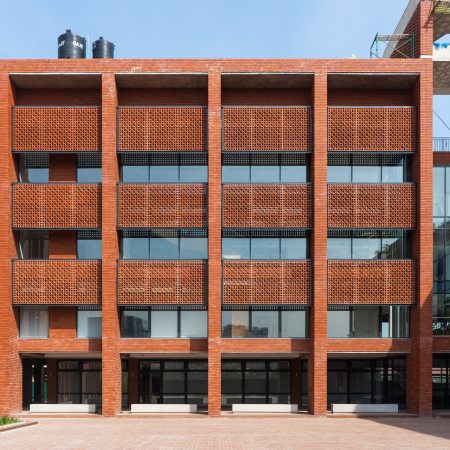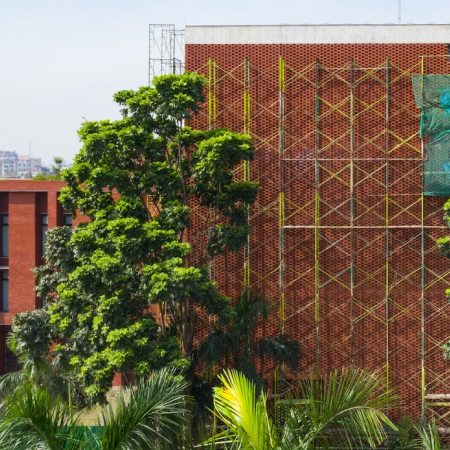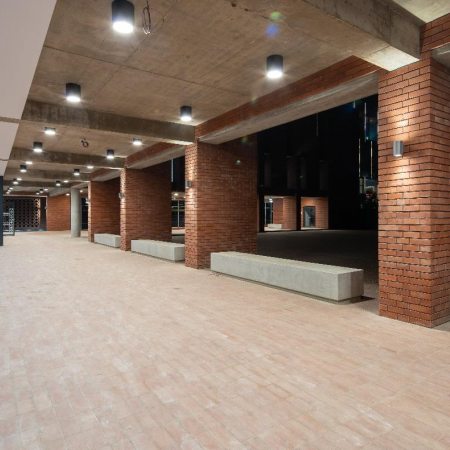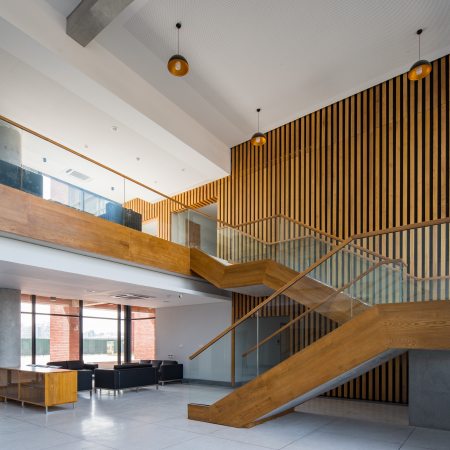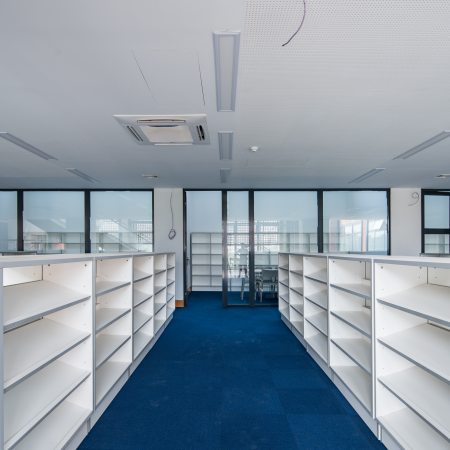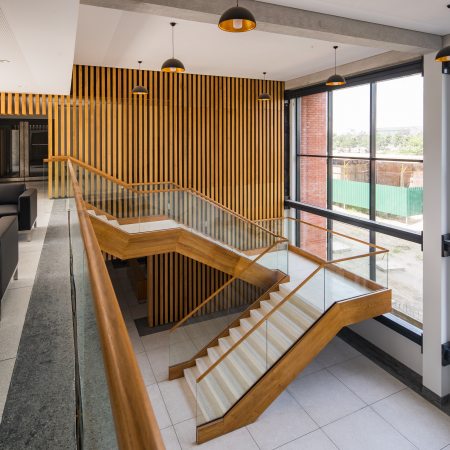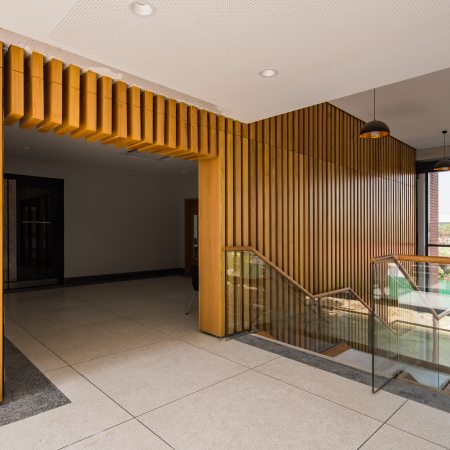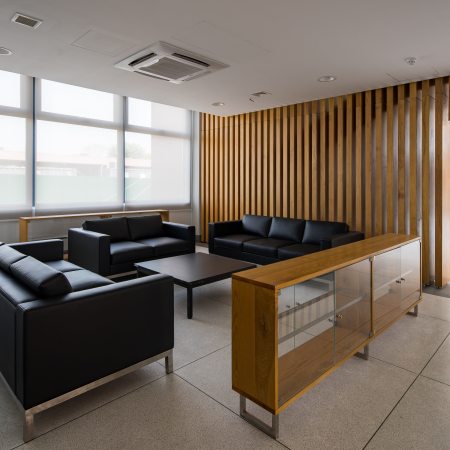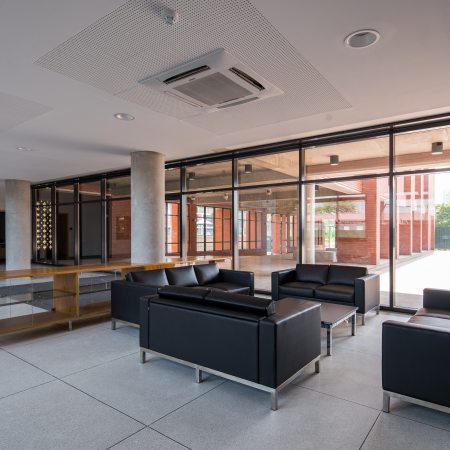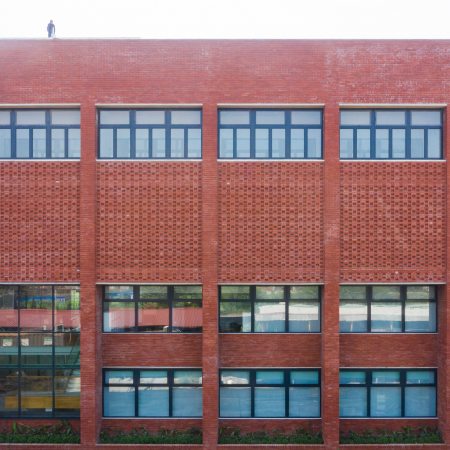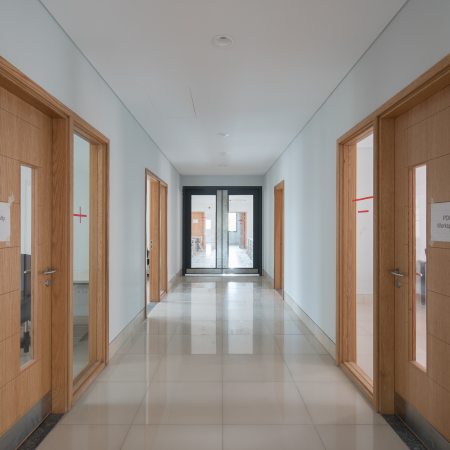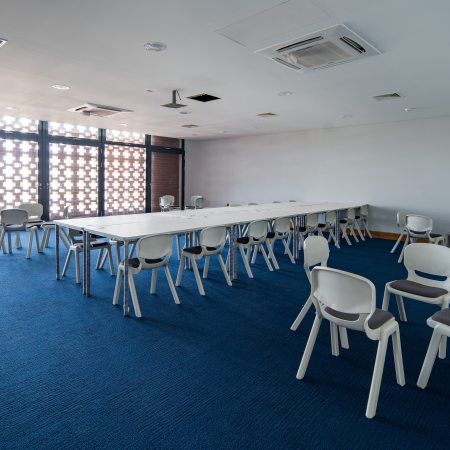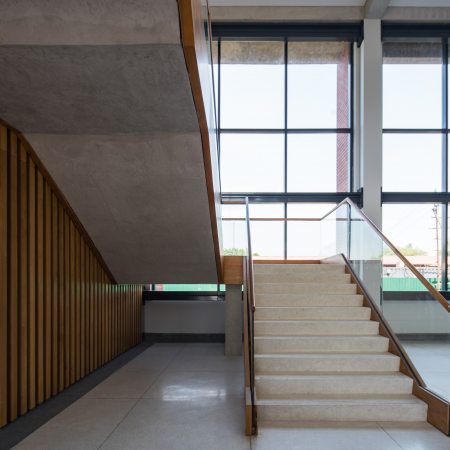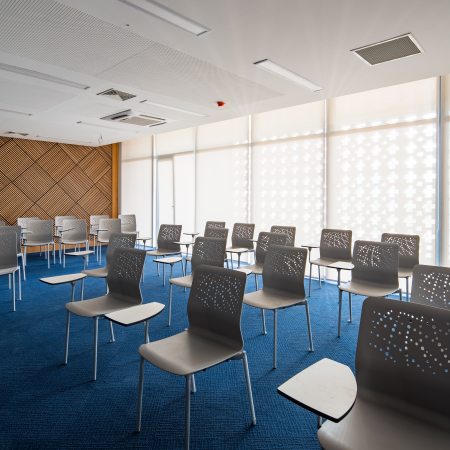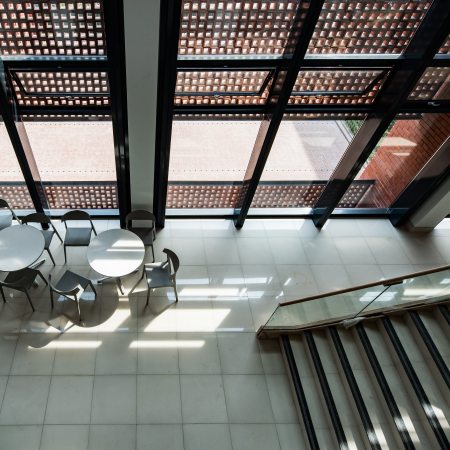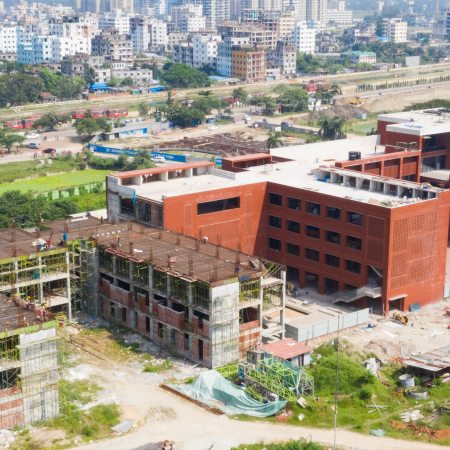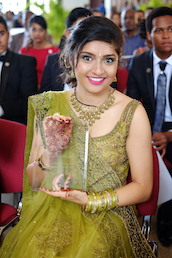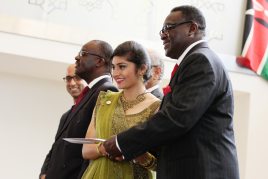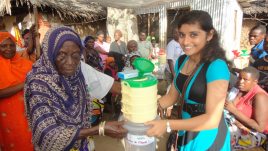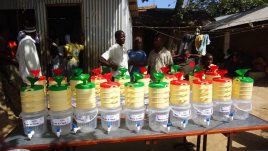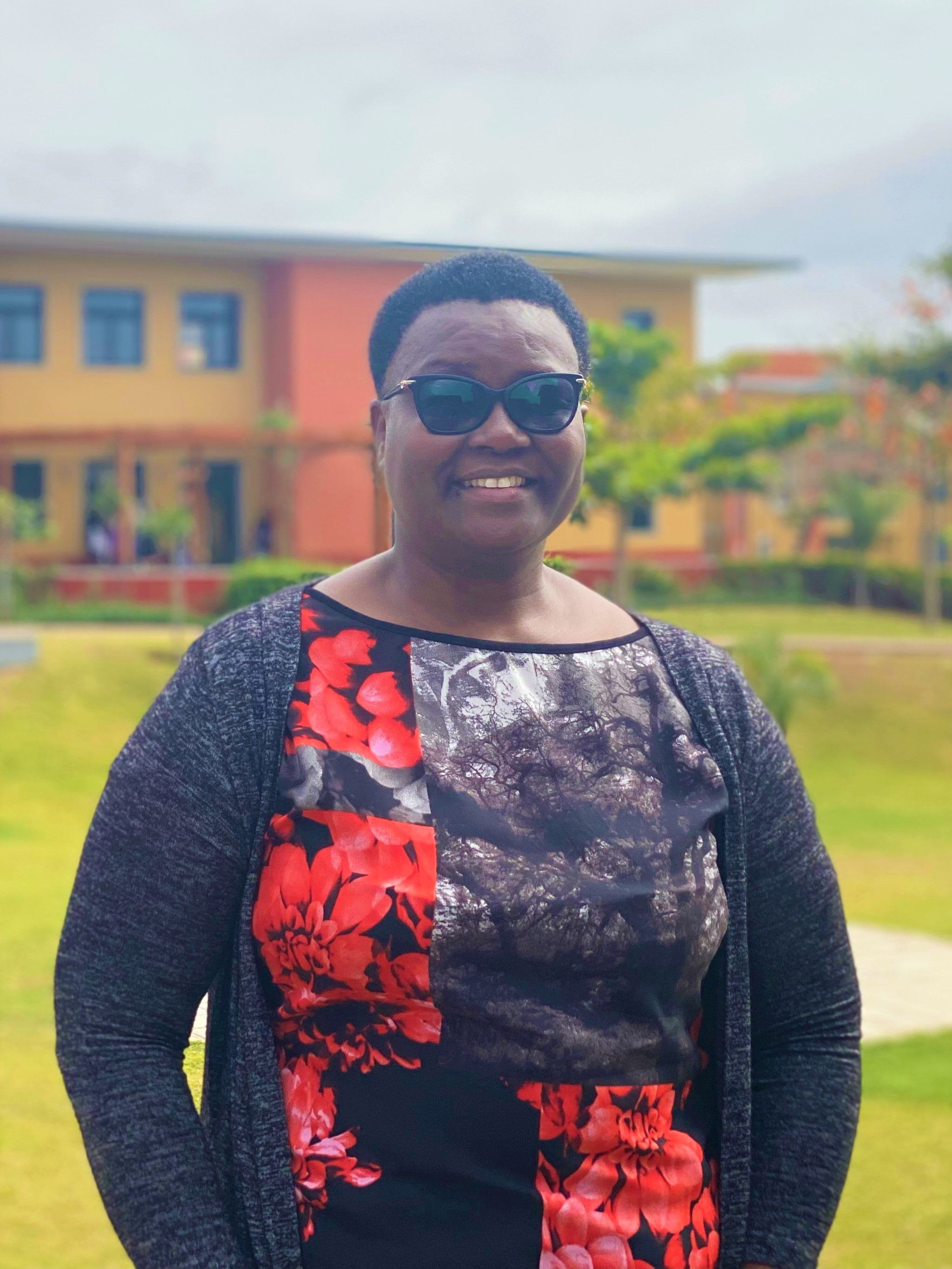Zara Amjad, a Diploma Programme 2 student, speaks to Shritha Sattaru about how the Aga Khan Academy Hyderabad helped her evolve as a confident leader over the past 12 years.
Aga Khan Academy Dhaka Construction Diary
It has been an incredibly busy month since our last construction update at the Aga Khan Academy Dhaka! Our construction team have worked on the external brick work at all of the facades for our Nursery and Junior School. We are also pleased to see our Senior School courtyard! In addition, the team is wrapping up their work on the Nursery and Junior School classrooms, laboratories and administrative areas around the school.
We are so excited to see the Aga Khan Academy Dhaka campus coming together and we cannot wait for our students and staff to be welcomed on campus next year!
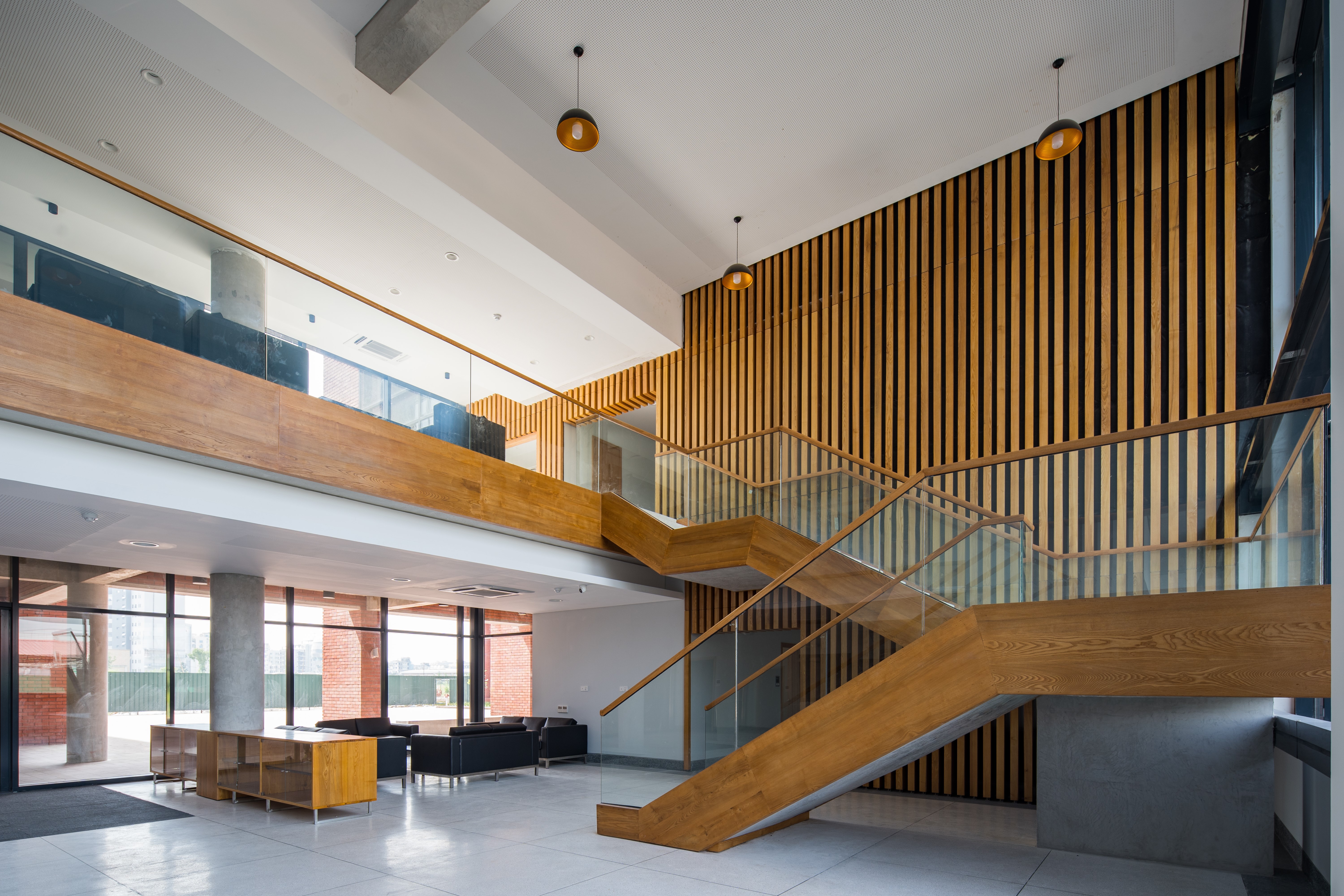
Karishma Bhagani (Class of 2015): Making a splash for clean water
Look below for a video of Karishma speaking at the Passion in Science Awards.
Last year, 20-year-old Karishma Bhagani of Mombasa, Kenya was awarded a seed grant at the NYU Reynolds Changemaker Challenge, beating out eight other teams and 46 other projects. Bhagani won the seed grant for an innovative water purification system that makes the most of natural resources in cash-strapped communities that need clean water. Her initiative, Matone De Chiwit, came about as a solution to a problem she noticed: more and more diseases were emerging as a result of fluctuating weather in the country, ranging from floods to drought conditions. She knew that something had to be done.
Matone De Chiwit means “drops of life” in three different languages. Matone means drops in Kiswahili (Kenya), de means “of” in Spanish (Latin America) and chiwit means “Life” in Thai (Thailand). These three languages represent the three parts of the world that suffer the most from clean water scarcity. It also speaks to the global nature of her venture, as Bhagani intends to expand her project to these three regions and beyond.
Aga Khan Academy as an Inspiration
Bhagani is a fourth-generation Kenyan who recently moved to New York City where she is studying drama, history and South Asian studies at New York University. The Aga Khan Development Network has always been a part of her life as she was one of 17 students at the Aga Khan Academy in Mombasa who made up the first class to have been educated from pre-school to IB graduate.
The biggest lesson that Bhagani drew from her education is to be a holistic student. She strives to be as well rounded as possible, striking a balance between a social life, sleep, work and school, all with the goal of making a global impact. This pursuit of balance was inspired by her many years at the Aga Khan Academy.
“I think that at the end of the day what everything comes down to is how we can be citizens of the world and how we can change the world that we live in to make it a better place for ourselves and children that follow us. And part of that also means giving back to your own community,” said Bhagani.
When she was in middle school, she was required to carry out a personal project on something that inspired her. Having noticed the drastic fluctuations of weather and rampant diseases in her country, Bhagani decided that she would come up with an innovative water purification system that uses readily accessible natural resources. Her initiative uses locally available materials – sand, gravel, charcoal and cotton cloth – to purify water for villagers all across Kenya. The initial version of the product also used chlorine tablets called Aquapur. Bhagani received generous sponsorship funding from Davis & Shirtliff, a local water supply company, for donating 20 units to a community to test for effectiveness. “A lot of the families said that the water was ‘tamu sana’ which in English means very sweet,” said Bhagani.
Before Bhagani came up with her product, local families were typically just drinking untreated water, using a lot of energy to boil it on charcoal-heated stoves or using Aquapur chlorine tablets.
Testing and Improving
Through testing and implementation in villages, Bhagani and her partners came to the realization that using chlorine in a plastic container might not be the best idea. These tablets can actually be dangerous to human health — high doses can be potentially harmful as the plastic in the bottles reacts with the chlorine, resulting in the spread of more serious illnesses. So they decided to change it to moringa oleifera, essentially dried seed kernels of drumstick tree powder. Then, she carried out a lot of testing by collaborating with the Coast Water Services Board. She found that the new version worked just as well as the chlorine unit did.
When she was in the IB program at the Academy, she had the opportunity to take her unit to the Golden Climate International Environment Project Olympiad. That’s where she carried out even more research and testing to modify and improve the system. Her project ended up advancing to the national round, then the international round, where she won gold in its category.
It was at this point that she decided to patent the product. She applied before starting at NYU and received the patent while she was a first-year student.
Why Matone De Chiwit?
What sets Matone De Chiwit apart from competitors is that the device is both chlorine-free and cost-effective. Since it’s made up of natural resources common in rural Kenya and other parts of Africa, they can be replaced easily, which means users don’t have to rely on Matone De Chiwit to replenish the filter. Charcoal is easily found and other ingredients, like the drumstick tree powder, can be grown in their backyards. Additionally, Moringa olifeira grows in a variety of climates and doesn’t need much water to grow.
In terms of cost, it’s much cheaper in the long-term than what is currently used. Even so, Bhagani intends to ensure it’s affordable for rural villages by applying for sponsorship and grant funding from large companies all over Europe and North America. Her venture is also bridging the gap from the city to the village, because she is working with people from each of those communities and bringing them together to achieve clean water and sanitation for all.
The Future
With the seed grants that Bhagani recently received, including the Reynolds grant, she plans to carry out her first beta testing. The biggest challenge for her at the moment is having an adequate source of funding to collect data.
“It’s kind of a chicken-and-egg situation because we need more evidence of this product working in practicality in communities so that we can apply for more grants to sustain us, but without the grants it’s difficult to go out into the communities to actually grow these projects with that seed money,” said Bhagani.
With the little funding that she currently has received, she plans to establish the purifiers in at least two or three communities. Bhagani will continue checking on the units to get enough data so she can apply for larger grants and potentially work with philanthropies like the Gates Foundation. She also hopes to conduct more research on its effectiveness through beta testing in communities.
“In five years’ time, I hope to have conducted at least ten beta tests in Mombasa, and have expanded the venture all across Kenya. My intention is to begin applying for larger grants by that time so that we can expand to other countries around the world,” said Bhagani.
Additionally, she plans to collaborate with other Aga Khan academies in Hyderabad, India and Maputo, Mozambique. That collaboration could build on student organizations that can work with the rural communities that they already engage with.
Her long-term plan is to create a sustainable community, which not only bridges the urban/rural divide but also allows families to provide for themselves.
This spotlight is republished courtesy of AKF USA.
Welcome to the Aga Khan Academy, Maputo
Quick links
The Aga Khan Academy Maputo has been awarded IB status by the International Baccalaureate
Multimedia
The Aga Khan Academy Maputo: From Vision to Reality
View all Academies videos
Recent news
Kamala Vege, a Diploma Programme 2 student, speaks to Shritha Sattaru about how the Aga Khan Academy Hyderabad has been a constant in her life over the past 12 years.
Aga Khan Academy Dhaka organised a series of empowering parents' workshops to strengthen partnerships between parents and the Academy and ensure safer environment for the students.
Publications
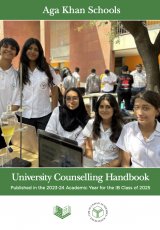
Aga Khan Schools University Counselling Handbook 2023-2024
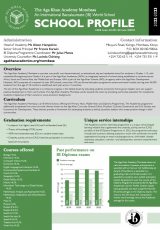
AKA Mombasa IB School Profile 2022-2023
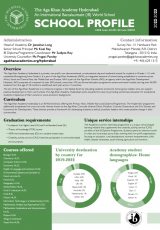
AKA Hyderabad IB School Profile 2022-2023
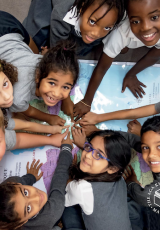
The Aga Khan Academy Maputo
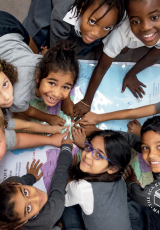
The Aga Khan Academy Maputo
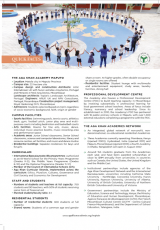
AKA Maputo Quick Facts Sheet (ENG and PT)

Aga Khan Schools Annual Publication 2021
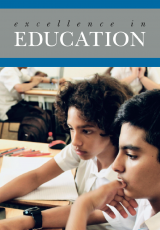
The Aga Khan Academy Dhaka
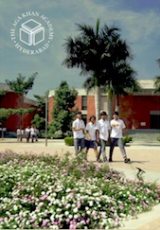
The Aga Khan Academy Hyderabad
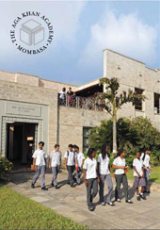
The Aga Khan Academy Mombasa
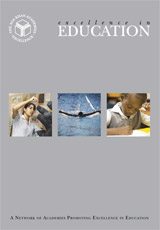
Excellence in Education
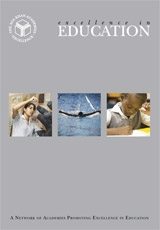
Excellence in Education
Excellence in Education
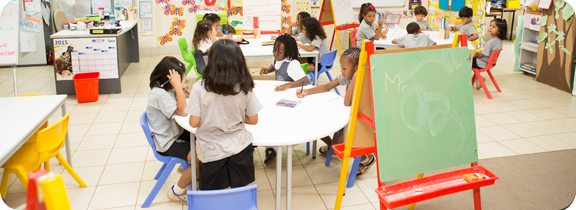
Publications
Please follow the link below to view publications from the Aga Khan Academies.

Aga Khan Schools University Counselling Handbook 2023-2024

AKA Mombasa IB School Profile 2022-2023

AKA Hyderabad IB School Profile 2022-2023

The Aga Khan Academy Maputo

The Aga Khan Academy Maputo

AKA Maputo Quick Facts Sheet (ENG and PT)

Aga Khan Schools Annual Publication 2021

The Aga Khan Academy Dhaka

The Aga Khan Academy Hyderabad

The Aga Khan Academy Mombasa

Excellence in Education

Excellence in Education
Excellence in Education
Newsletter Subscription
Click here to subscribe to the Aga Khan Academies newsletter
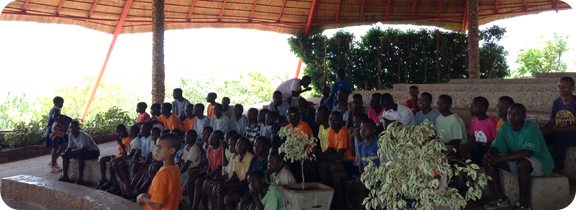
Community Links
The vision set out by His Highness the Aga Khan is for each Academy to become an integral part of the greater community in which it resides. This value applies not only to the students but also to the teachers at each of the Academies.
This focus comes into play at the admissions stage where potential students are chosen not only for their thirst for knowledge and intellectual merit, but also for having a high level of social awareness. This includes the desire to work towards, and instigate, positive change and the potential for leadership in community service.
Community service plays a large part in each of the levels of education offered at the Academies, which in turn allows for graduates that are civic minded. In choosing the sites for each school, special attention is paid to not only what the area can offer the students but also what the Academy can offer the community.
While supporting students in developing an understanding of global issues, the Academies’ educational programmes also reflect great sensitivity to local languages, history, cultures and environment. Each school is committed to inspiring and empowering students to use their gifts for the betterment of humanity.
Creativity, activity, service
In choosing the International Baccalaureate programme, the Aga Khan Academies chose to incorporate the creativity, activity, service (CAS) component.
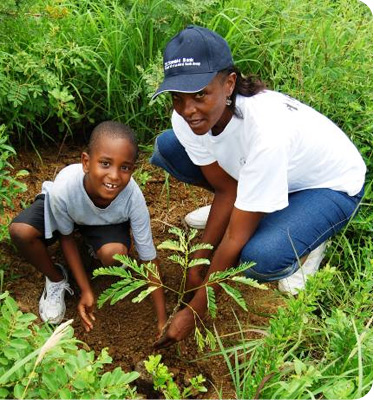
This integral programme is designed to create global citizens through active participation in and reflection upon experiences gained through a variety of creative endeavours, physical activities and community service projects.
Students develop a greater level of self-confidence, teamwork and leadership skills, and a sense of civic responsibility.They take part in sustainable projects that have real and lasting effects on the greater community. And they develop strength of character and an understanding of their ability to bring about change.
The CAS programme is valued for its power to transform not only the lives of students but also those with whom the students interact.
It also serves as a platform for interpersonal exchange, personal growth and greater understanding of the issues we face as a global community.
For more information of our CAS projects in action, visit our school websites.
Professional development outreach
Emphasis on community outreach and service is extended to the staff at each Academy as well, especially the teaching staff.
Each school will incorporate a Professional Development Centre (PDC), which will promote excellence in teaching on campus and strengthen the profession of teaching in the region as well.
"At the Academy, I feel part of a community. I am active in service projects that are making a real and lasting difference to people. I had no idea how important this would become for me."The Academy’s PDC supports excellence in teaching by promoting best practices in teaching and learning and by providing ongoing, collaborative training of Academy faculty as well as teachers and headteachers from neighbouring government, private and not-for-profit schools.
Faculty members are also enriched by opportunities to collaborate with colleagues across the globe and to teach abroad within the Aga Khan Academies network.
